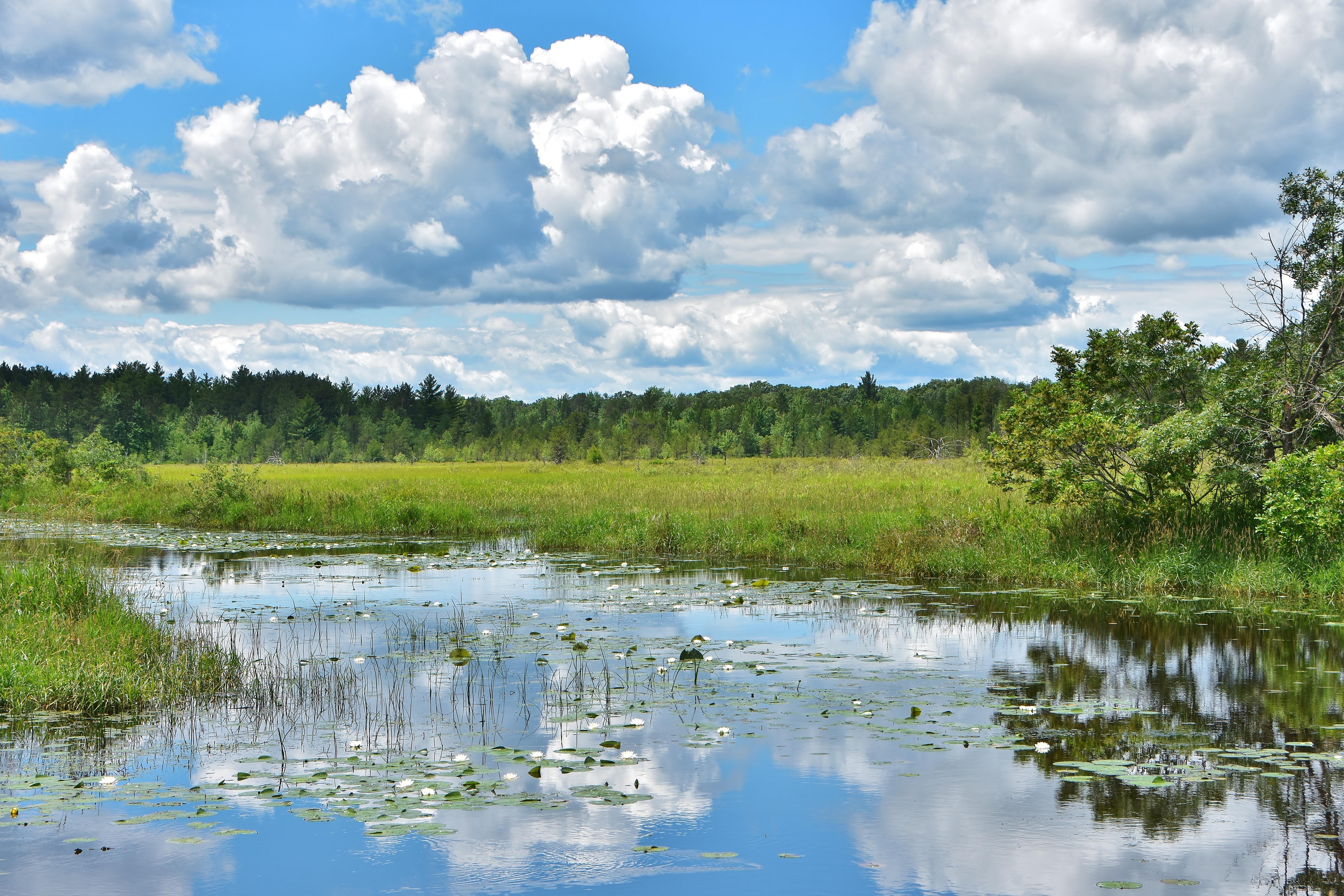2017-18 Legislative Wrap Up
We all know that we should vote. It is our right and our duty. However, if you are looking for additional motivation and for reasons to make sure you cast your ballot this year, look no further than the results from the 2017-18 Wisconsin Legislative session. Continuing the trend of the last few years we saw attacks and rollbacks on basic environmental protections, loss of local control, and changes to the governmental procedure that will make it more difficult for the state government to protect its citizens from environmental harm.
Sometimes the answer is just “no”
One of the very troubling trends in the last couple of years is that a legislator will hear a complaint from a single person (often a significant donor) and will draft legislation to change a state law that applies to everyone just fix their problem. Because of the statewide impact, these bills often have horrible environmental impacts. Two examples from this session are the dredging law described below and the changes to the definition of navigability.
Often people have tried to work through the relevant DNR process but have not gotten what they want. While the DNR can typically accommodate a request, sometimes those requests are denied -- and for good reason. There are some wetlands, for example, that are simply too important to be filled and some activities that are too hazardous to be allowed without oversight. Despite this, our legislature has passed some laws to benefit these very few. One person’s problem does not mean there is a statewide issue, and passing laws that affect the entire state has led to laws will be devastating to the environment.
Attacks on environmental protections
Despite the mounting evidence of harm to the environment and human health from consumptive human activities – factory farms, high capacity wells, and frac sand mines to name a few – the legislature continued to weaken our standards. Here are the low lights:
Water
Protection of water quality and water quantity was hit particularly hard in this session. The three most notable examples relate to high capacity wells, wetlands, and dredging.
High Capacity Wells
The High Capacity Well law essentially granted high capacity well owners the right to pump in perpetuity. This is a clear affront to our current system of water law of reasonable use because it creates a potentially permanent privatization of a public resource.
Because of this, even dramatic changes in Wisconsin’s water resources such as drought or cumulative over-pumping in an area would not affect the ability of a high-capacity well owner to continue drawing down water resources to the detriment of others. This could strongly impact lakes, streams, and other water resources in the area as well as neighboring people and their property.

Wetlands
Non-federally protected wetlands in Wisconsin serve important ecosystem functions, such as filtering pollutants and preventing them from reaching lakes and streams, providing critical high-quality habitat for waterfowl and other animal species (some of which are threatened or endangered) and providing valuable flood storage and control. Wetlands in urban areas are particularly important for flood control and reducing property damage during storm events. Because of all the services wetlands provide, allowing their destruction is particularly short-sighted.
The controversial Wetlands Bill (A.B. 547) removes protection of non-federal wetlands in every city and village in Wisconsin, including areas within a one‐mile radius of those municipalities. This is already as much as 10% of all non-federal wetlands in the state, but as communities grow, wetland permit exemptions areas will also grow, putting more and more critical wetland ecosystems at risk.
This disastrous law allows one landowner to impose a burden on other landowners. We often receive calls in our office from landowners from around the state complaining that they have erosion or flooding problems, or that they no longer see various waterfowl or songbirds they used to enjoy because their neighbor has destroyed an adjacent wetland. This law will make this more common and more extreme.
Dredging
The Dredging Bill (S.B. 789) requires the Department of Natural Resources to issue a general permit allowing, with some exceptions, waterfront landowners to remove up to 50 cubic yards of sediment material per year from waters affected by a man-made impoundment (dams or reservoirs). This is the equivalent of removing five dump truck loads of material by every landowner every year without any review. Removing material from a lakebed can cause a number of problems including the destruction of habitat and spawning areas and resuspension of silt and other contaminants present in the material. These changes can adversely affect the lake, neighbors and other users of the water body such as swimmers, boaters, and fishers.

Air
The two bills described below are not only attacks on standards that protect human health, they are also attacks on science and informed policy-making.
One bill this session would have removed air pollution standards for over 350 substances; fortunately, this one did not pass. However, it is indicative of the contempt the legislature has towards science and health-based protections. These substances are being regulated because of their ability to cause human health problems. The Wisconsin Department of Natural Resources relied on the research of agencies including the American Conference of Governmental Hygienists, the National Toxicology Program and the International Agency for Review of Carcinogens in choosing the substances to be regulated. The “state” substances regulated in Wisconsin are on the list because they cause a number of human health effects ranging from cancer to irritation of the eyes and respiratory tract. These impacts are particularly problematic for our most vulnerable populations: the young, the sick and the elderly. In 2016, millions of pounds of these chemicals were collectively released in Wisconsin.
The legislature did pass a bill that sought to remove the air quality monitoring station in Kohler-Andrae State Park because much of the pollution the station picks up is from Illinois and Indiana. This bill would prevent the collection of vital information that is important for the health of Wisconsin families. The air quality monitor collects data on ozone pollution. Ozone can cause coughing and trouble breathing even among the relatively healthy, and is extremely bad for those with asthma and other breathing disorders. Regardless of where the pollution is coming from, the monitor serves an important role indicating its presence and quantity. Removing the monitor is the equivalent of telling people to go home and take the batteries out of their smoke alarms.
Land
The Mining Law passed to overturn the two-decade-old Mining Moratorium and the “Prove it first” law as well as key financial provisions which have protected Wisconsin’s environment and public health from dangerous sulfide ore mining. Metallic mining is one of the largest and most destructive land uses in the state causing, among other things, long-term water pollution that would threaten existing ecosystems and economic engines such as tourism and agriculture. There is no question that mining activities are inherently destructive and create “boom and bust” local economies. The impacts from mining and mine wastes should require strict and careful monitoring and management to limit environmental damage and negative economic impacts on local communities and the state. The mining industry’s motives for relaxing regulatory standards are unquestionably based on its primary goal to maximize profit, even at the expense of environmental and public health. Notably, this law benefits Aquila Resources as they push their proposed Back 40 sulfide mine near the Menominee River in north-eastern Wisconsin.

Foxconn
On top of giving Foxconn more than $3 billion in subsidies, the legislature and Governor also exempted them from many environmental standards and safeguards. To name a few, the facility is exempted from writing an environmental impact statement (EIS) and is allowed to fill non-federal wetlands and straighten streams without permits.
A project of this size and scope is complex. This requires a thorough review of the environmental impact is needed to fully understand the effects of the Foxconn development, as well as how that impact can be minimized. Removing permit requirements and environmental review will open the door to many negative environmental outcomes.
Allowing wetlands and navigable waters to be filled and streams to be straightened without a permit is a particularly bad mistake. The permit process exists to ensure that negative impacts are minimized, both at the affected site stream site and downstream. Wetlands provide many critical functions, several of which were mentioned above. Filling wetlands indiscriminately can lead to floods both on-site and downstream. Similarly, straightening a stream can increase the speed water moves through the water body and exacerbate flooding. The removal of the permit requirement greatly increases the risk of these issues occurring.
Process
The legislature passed a law requiring any state agency to stop work on any rule that would cost more than $10 million dollars in a two year period. Work on the rule(s) would be suspended until the legislature passes a law specifically allowing the rule. This is bad for a number of reasons. Wisconsin State government protects public health in myriad ways; it does that by setting rules that we all have to abide by. Take lead contamination for example. Under this law, if a state agency wanted to adopt a rule (which requires public notice, public participation, and legislative review already) to remove lead pipes from buildings to prevent further lead poisoning of our children they would have to stop until the legislature acted. Given the vagaries of the legislative process, this is madness.
Loss of local control
For the last seven years, the legislature has been taking power away from local governments – counties, cities, towns – and concentrating it at the state level. There have been over 100 such laws passed since 2011. The trend continued this year with the passing of a law that makes it harder for local governments to manage the land within their borders by making harder for them to deny conditional use permits or variance requests among other things.
Up Side
Despite all this bad news, there were a few bright spots:
There were no further cuts to the DNR.
We won on a modest bill which allows local governments to create funding mechanisms for landowners to remove lateral lead pipes for drinking water.
We killed the I-94 megaproject and received some more funding for transit and local roads in the budget.
We killed another very bad bill that would have repealed administrative rules on a 9-year rolling time-frame.
We killed a potential bill that would have prohibited the state from spending any money to manage wolves or enforce any law that prohibited killing wolves as long as they are on the federal endangered species list.
